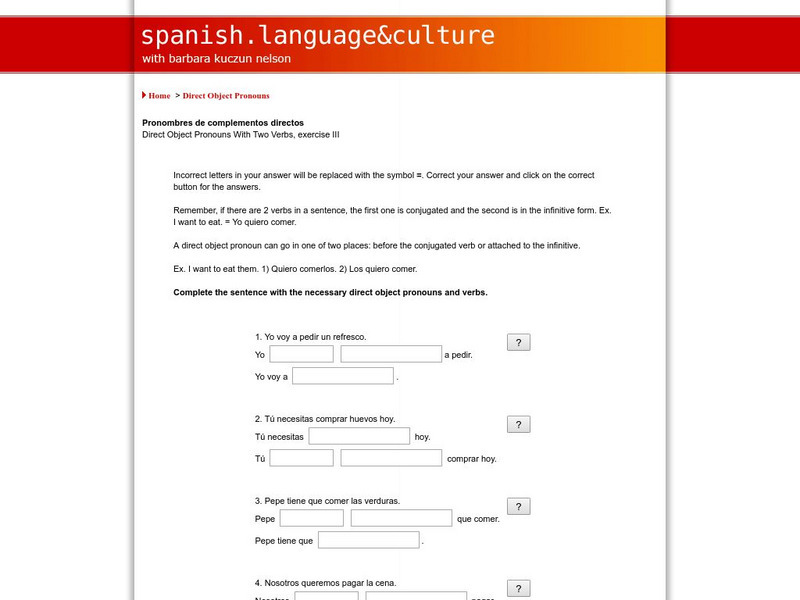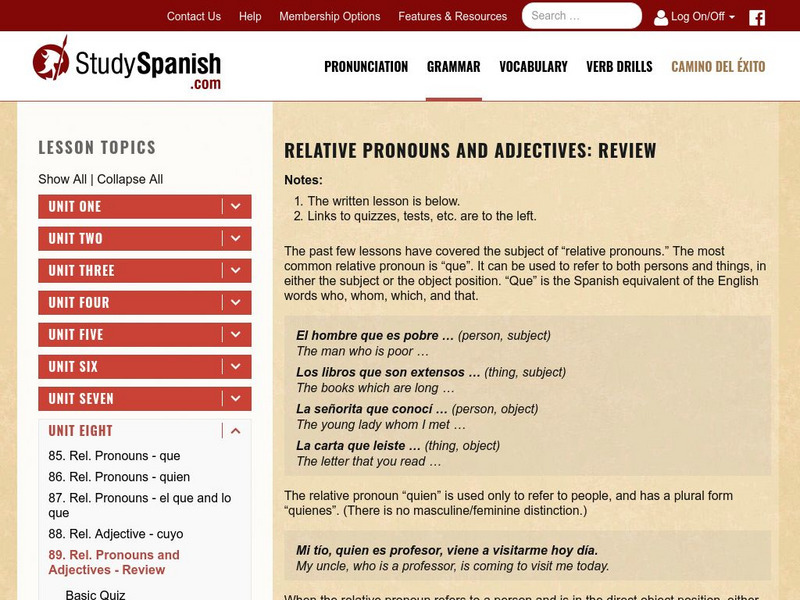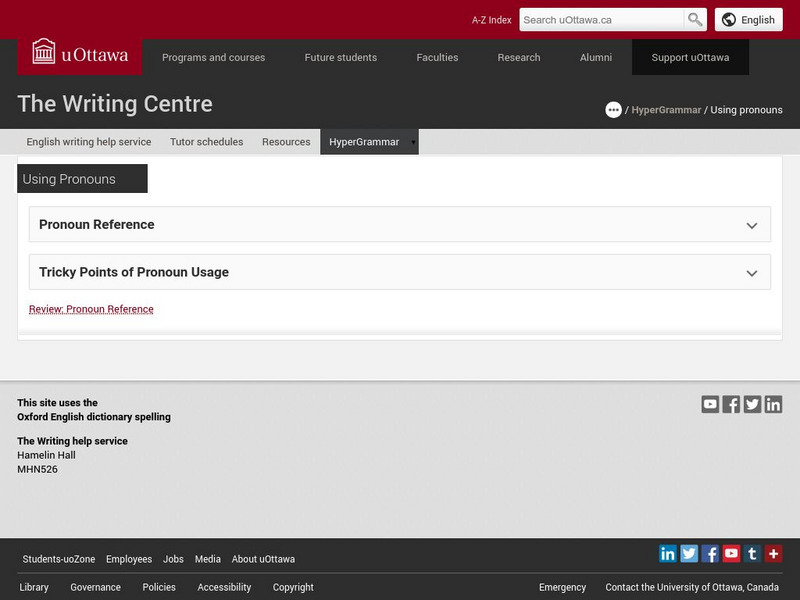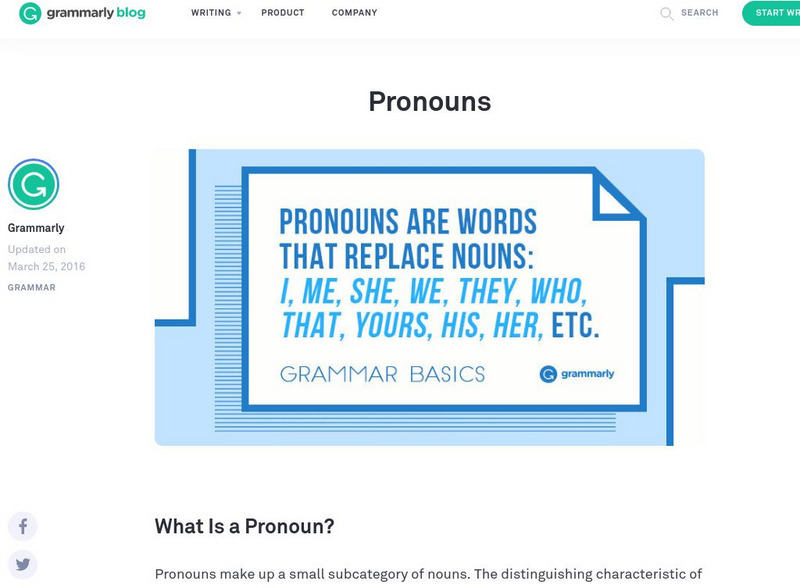Curated OER
Context is Everything: Grammar Lessons
Teaching students about grammar using popular, and well written, literature can be the best solution to a tricky topic.
Towson University
Towson University: Online Writing Support: Pronouns
This entry focuses on the kinds of pronouns including personal, relative, indefinite, demonstrative, interrogative, reflexive/intensive, and singular and plural pronouns. It provides an explanation and examples of each.
Sophia Learning
Sophia: Adjective Clauses and Relative Pronouns
This slideshow lesson focuses on adjective clauses and relative pronouns; it discusses the purpose of adjective clauses and the three conditions required to be an adjective clause. It provides the two adjective clause formulas with...
Capital Community College Foundation
Guide to Grammar and Writing: Pronouns and Pronoun Antecedent Agreement
This tutorial-quiz for pronoun usage features many examples of where pronouns fit in a sentence to achieve proper antecedent agreement.
Texas Education Agency
Texas Gateway: Writing: Editing: Reciprocal Pronouns
A learning module that teaches students about reciprocal pronouns in three mini-lessons: Introduction, Each Other and Each Other's, and One Another and One Another's.
Texas Education Agency
Texas Gateway: Reciprocal Pronouns (English I Writing)
You will be able to understand the function and use of reciprocal pronouns such as each other and one another.
University of Texas at Austin
Ut Austin: Introduction to French Pronouns
Wonderful overview of French pronouns. Defines and describes (with excellent examples) all the different kinds of pronouns. Very clear and easy to understand.
Study Languages
Study Spanish: Relative Pronouns: Quien
An excellent introduction to using the Spanish relative pronoun "quien," that contrasts its use with the pronoun "que," Ample examples in Spanish and English illustrate this principle. Students may test their understanding of the...
Colby College
Spanish Language & Culture: Direct Object Pronouns (Part 3)
Great exercise for practicing direct object pronouns with a verb infinitive in the sentence. A brief English explanation introduces the lesson. Incorrect responses are corrected.
Curated OER
Mc Graw Hill: Language: Pronouns
Learn how to use the varying different types of pronouns in this excercise.
Study Languages
Study Spanish: Relative Pronouns and Adjectives: Review
An excellent review of relative pronouns and adjectives in Spanish. Ample examples in Spanish and English illustrate their usage. Students may test their mastery of this principle with a quiz that follows the lesson.
Texas Education Agency
Texas Gateway: Reciprocal Pronouns (English Ii Writing)
Understand the function and use of reciprocal pronouns such as each other and one another.
Fact Monster
Fact Monster: Pronouns: Subjective, Objective, Possessive, Demonstrative, Etc.
This grammatical reference shares definitions of each type of pronoun. Each category of pronoun includes several examples. The following types of pronouns are included: demonstrative pronouns, indefinite pronouns, intensive pronouns,...
University of Ottawa (Canada)
University of Ottawa: Using Pronouns
Clear and simple explanation of the various types of pronouns, this site is easy to read and follow.
Lumen Learning
Lumen: Grammar: Pronouns
This lesson focuses on pronouns including functions of pronouns, types of pronouns, pronoun person, number, and case, and pronoun and antecedent agreement and clarity. It also provides three pronoun videos, pronoun practice, and a...
Grammarly
Grammarly Blog: Pronouns
This page focuses on pronouns including definitions, personal pronouns, antecedents, relative pronouns, who vs. whom, demonstrative, indefinite, reflexive and intensive, possessive, and interrogative pronouns. Examples are provided for...
Other popular searches
- Grammar Worksheets Pronouns
- Possessive Pronouns
- Subject and Object Pronouns
- Indefinite Pronouns
- Object Pronouns
- Pronouns and Antecedents
- Direct Object Pronoun
- Personal Pronouns
- Subject Pronouns
- Demonstrative Pronouns
- Reflexive Pronouns
- Relative Pronouns

















